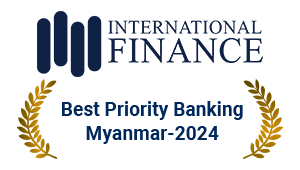At its simplest, corporate governance is about how companies are directed and controlled. The focus is on the Board of Directors and the checks and balances are required to ensure the interests of the management of the organisation do not diverge from those of the owners-the shareholders. Good governance should provide incentives for the Board and management to pursue objectives that are in the interests of the Bank and should facilitate effective monitoring of management.
In addition to monitoring and controlling the management, the Board of Directors is equally concerned with the development of strategy and enhancing the prosperity of the business. The need for systems of control does not eliminate the need for good strategic decision making. Good Board processes and internal relationships with clear lines of authority and decision-making powers help to build a successful business. This has implications for the role and composition of the Board, the creation of board committees, especially audit, and the contribution that independent outside directors could make.
Corporate governance is the essential factor that determines the accountability of companies to their shareholders and ensures that they are transparent in their activities. Accountability and transparency build trust and confidence with stakeholders. So corporate governance is both about accountability of boards and also how directors can best shape and enhance the performance of their organisations. The best boards recognise that sustainable high performance comes from striking a balance between wealth creation and control, and promoting high standards of both.
Corporate governance for banks is critically important given their financial ntermediation role; the need to safeguard depositors’ funds, in particular, and shareholders’ funds, and the consequences of ineffective governance practices.
Governance failures risk markets losing confidence in the ability of the bank to manage its assets and liabilities which could trigger a liquidity crisis or a run on deposits.
Review and analysis of the investments, risk exposures and financial statements of banks can be complex, so it is particularly important to have clear and rigorous authorities, responsibilities, systems and processes to ensure that decision making in the bank is properly managed.
The Basel Committee of Banking Supervision had issued a paper titled Enhancing Corporate Governance for Banking Organization revision 2006 to help ensure the adoption and implementation of sound corporate governance practices by banking organizations worldwide and summarizes the responsibilities of the board. Extract of the core principles of the guideline are reproduced below.
Board members should be qualified for their positions, have a clear understanding of their role in corporate governance and be able to exercise sound judgment about the affairs of the bank.
The board of directors should approve and oversee the bank’s strategic objectives and corporate values that are communicated throughout the banking organisation.
The board of directors should set and enforce clear lines of responsibility and accountability throughout the organization.
The board should ensure that there is appropriate oversight by senior management consistent with board’s policy.
The board and senior management should effectively utilise the work conducted by the internal audit function, external auditors, and internal control functions.
The board should ensure that compensation policies and practices are consistent with the bank’s corporate culture, long-term objectives and strategy, and control environment.
The bank should be governed in a transparent manner.
The board and senior management should understand the bank’s operational structure, including where the bank operates in jurisdictions, or through structures, that impede transparency (i.e. “know-your-structure”).
The Board of Directors’ primary purpose is to provide effective governance over the Bank’s affairs for the benefit of its shareholders, and to balance the interests of its diverse stakeholders, including its customers, employees, suppliers and local communities. In all actions taken by the Board, the Directors are expected to exercise their business judgment in what they reasonably believe to be in the best interests of the Bank and to comply with relevant laws, regulations, rules and best banking practices.
The Board shall be comprised of both executive and non-executive directors in order to inspire confidence among stakeholders. The appointment of executive directors helps ensure effectiveness by the addition of executive knowledge in the area of management, operations and internal controls of the Bank. The appointment of independent directors helps ensure that a board has members who can exercise good judgement that is not clouded by real or perceived conflicts of interest, and are people of an independent mind who will form a view based on the facts and are able to stand their own ground. The Board shall comprise of at least two independent directors.
Candidates for nomination to the Board shall be submitted to the Board of Directors for approval taking into consideration the regulatory requirements, overall composition and diversity of the Board and areas of expertise that new Board members might be able to offer.
The role of independent directors ensures that a board has members who can exercise good judgement that is not clouded by real or perceived conflicts of interest, and are people of an independent mind who will form a view based on the facts and are able to stand their own ground. Independent directors shall be identified in the Bank’s annual reports as being people free of any material relationship with the Bank’s management, controllers or others who might be expected to interfere with the independent exercise of their best judgement in the exclusive interests of the Bank.
A number of the members of the Board should meet the criteria for independence as established by the Board and by the requirements of Regulators in effect from time to time.
The Board shall conduct an annual review of Board performance in accordance with guidelines to be agreed by the Board. The results of the review of Board performance shall be summarized and presented to the Board.
Directors are expected to attend Board meetings and meetings of Committees and Sub-Committees, on which they serve, and to spend the time needed and meet as frequently as necessary to properly discharge their responsibilities. Information and materials that are important to the Board’s understanding of the business to be conducted at a Board or committee meeting should be distributed to the Directors prior to the meeting, in order to provide ample time for review beforehand. The Chairman, with the assistance of the Secretariat to the Board, shall establish a calendar of standard agenda items to be discussed at each meeting scheduled to be held over the course of the ensuing year, and shall also establish the agenda for each Board meeting. Each Board member is free to suggest items for inclusion on the agenda or to raise subjects that are not on the agenda for that meeting.
The secretary shall be responsible for organising meetings, preparing and issuing the agendas and taking minutes of the meetings. Notice of each meeting confirming the venue, date and time together with the agenda and supporting papers will shall be distributed to each member of the committee not later than three days before the date of the meeting or a shorter time in exceptional circumstances. Minutes of committee meetings shall be circulated within seven days to all members and, once approved and signed by the Chairman and Secretary, will shall be sent to all members of the committee.
The Board shall review the Bank’s annual business plan and budget, long-term strategic plans and the principal issues that it expects the Bank may face in the future during at least one Board meeting each year.
Chaired by a non-executive and comprising majority of non-executive directors with the Head of Risk, Compliance and Legal and Head of Internal Audit in attendance. External auditors may be invited as necessary.
The committee approves the appointment of external auditors and oversees their relationship with the Bank. It monitors the effectiveness of the internal audit as well as risk and compliance and legal functions and receives regular reports from those two departments. The committee reviews financial statements and as well as procedures and systems of internal control over financial reporting. The committee reviews arrangements for compliance with the requirements of regulators and receives reports on the operation of the Bank’s speak-up arrangements. The committee oversees the management of Credit, Market, Liquidity, Operational, Legal and other risks. The committee recommends risk philosophy and tolerance for board approval, defines the Bank’s risk appetite and reviews risk management processes used by the Risk Department.
To facilitate SHWE Bank in business continuity planning in response to the pandemic, BCP Committee was established.
This policy is formulated as part of the Business Continuity Plan with a view to giving SHWE Bank guidance during the COVID-19 outbreak in Myanmar. The purpose of the policy is to:
This policy is implemented with the 3 management areas below:
The human resource was effectively managed by close monitoring on WFH, WIO (work in office) and Shift employees.
The policy was crucial in producing the following benefits:
Purpose of the policy
The policy’s main objectives are:
The policy seeks to provide learning opportunities for all staff by performing their individual jobs effectively so that they can contribute to the Bank’s Vision, Mission, and Values. This helps the employees in individual effectiveness and efficiency by encouraging and supporting staff to achieve individual and career goals. By investing in people through their learning and development to their full potential they can focus their energies on the needs of the organization while fulfilling their need for personal development and job satisfaction that will be harnessed effectively in the future.
Purpose of the policy
The policy’s main objectives are:
The policy seeks to provide learning opportunities for all staff by performing their individual jobs effectively so that they can contribute to the Bank’s Vision, Mission, and Values. This helps the employees in individual effectiveness and efficiency by encouraging and supporting staff to achieve individual and career goals. By investing in people through their learning and development to their full potential they can focus their energies on the needs of the organization while fulfilling their need for personal development and job satisfaction that will be harnessed effectively in the future.




Copyright © SHWE Bank 2025. All rights reserved.